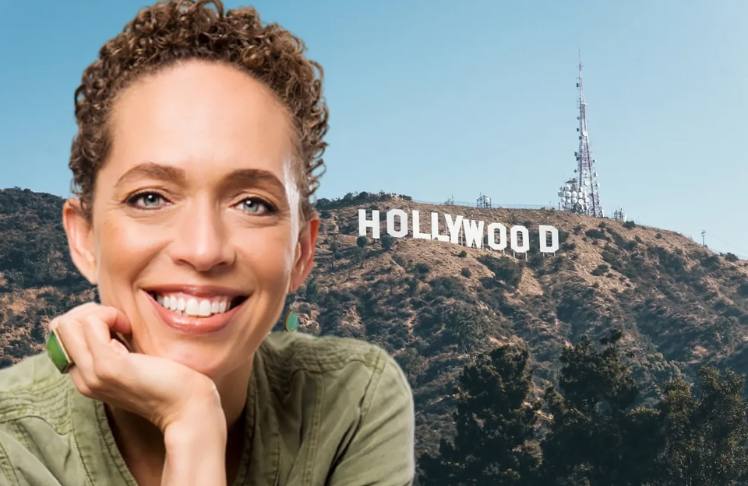
On paper, Fanshen Cox wears many professional hats. An actor, essayist, award-winning playwright, and film producer, she’s also an activist and consultant for racial equity in Hollywood and beyond. After all, Cox wrote the so-called “inclusion rider” that legendary actor Frances McDormand spoke of during her Oscar acceptance speech on live television in 2018.
Talk to Cox, however, and she is passionate about her role as a storyteller: someone who understands that a powerful narrative can influence, inform and even heal as well as entertain. She believes the stories we tell, and are told — about ourselves as well as one another — can stymie racial progress as much as promote it.
“I’ve come to realize that my strength in pushing towards truth and racial healing is in storytelling,” says Cox, president of TruJuLo Productions. The company’s name is a portmanteau of the words truth, justice, and love.
“I realized that what is so important in healing is to speak the truth,” she says. “And that truth has to be both our personal narratives connected to the context of our systemic history” and powerful institutions that perpetuate imbalances of power.
Cox says she came to understand her true storytelling superpower while working with her childhood friends, A-list actors Ben Affleck and Matt Damon — they grew up together in Cambridge, Massachusetts. The trio worked at their production company Pearl Street Films and collaborated on “One Drop of Love,” her acclaimed, one-woman show about race and being biracial in America.
An exploration of race as a construct, the 2013 show begins with Cox as a census worker asking the audience if they fit into one of four strict categories, including “free white man” and “slave” — before the storytelling begins. Though she cycles through a cast of characters and situations, Cox grounds the show in her quest for identity as the light-skinned, blonde daughter of a Black activist father and socially conscious white mother.
“The more I do this show, the more I realize that the most important thing I can do is have a critical lens on what it means to be mixed,” Cox said in a 2015 interview. “Race was created to maintain the ideology of white supremacy. I’ve had to reflect on what it means to have a mixed identity, and how exploring this identity perpetuates this ideology.
The play, and her work with Affleck and Damon’s production company, led to Cox co-writing the inclusion rider — language inserted in a performer’s contract that mandates on-set diversity behind the camera. Word about the rider reached McDormand, who received a standing ovation when she mentioned it during her Oscar speech.
Racial equity “was really at the root of creating the inclusion writer with the two other women,” Cox says. “Thinking through, how to give (Hollywood power players) tools to make their commitments clear and to hold themselves accountable and their productions accountable.”
Now, Cox is furthering her work, and promoting healing, through TruJuLo, her Los Angeles-based production company. The goal, she says, is to “nurture storytellers, to create film, TV, and media that looks at this process of truth and racial healing in various different ways.”
For example, “we have like a short film that we executive produced about a Jamaican immigrant who tries to integrate a white church in the 1970s,” she says. Other topics explore the meaning of gender identity and class, as well as race, with the goal of getting to the truth.
Even Cox is still working on what her identity means, and how racial healing can occur.
“I’m grappling with how much space to take up in these movements as a woman who has some white privilege, right, or some white-adjacency privilege,” she says. “I strongly and proudly identify as Black, but at the same time, I can see the ways that my work and my voice are frequently centered.”
Still, “I think that’s, on one hand, important, because I’m carrying a different perspective,” Cox says. “And at the same time, it sometimes perpetuates the very thing that I’m hoping I can help to dismantle.”
Ultimately, “I’m pushing to get at the truth and racial healing in all of the projects that we produce,” she says. “And that includes speaking and consulting, and then producing these projects and continuing to push for the use of the inclusion rider.”
Given her name — it’s Chinese and means, “to turn over” or “reveal” — Cox seems predestined to do the work.
“I don’t think I have any choice,” she says. “But I wouldn’t have it any other way.”
This story was produced in partnership with the W.K. Kellogg Foundation.















